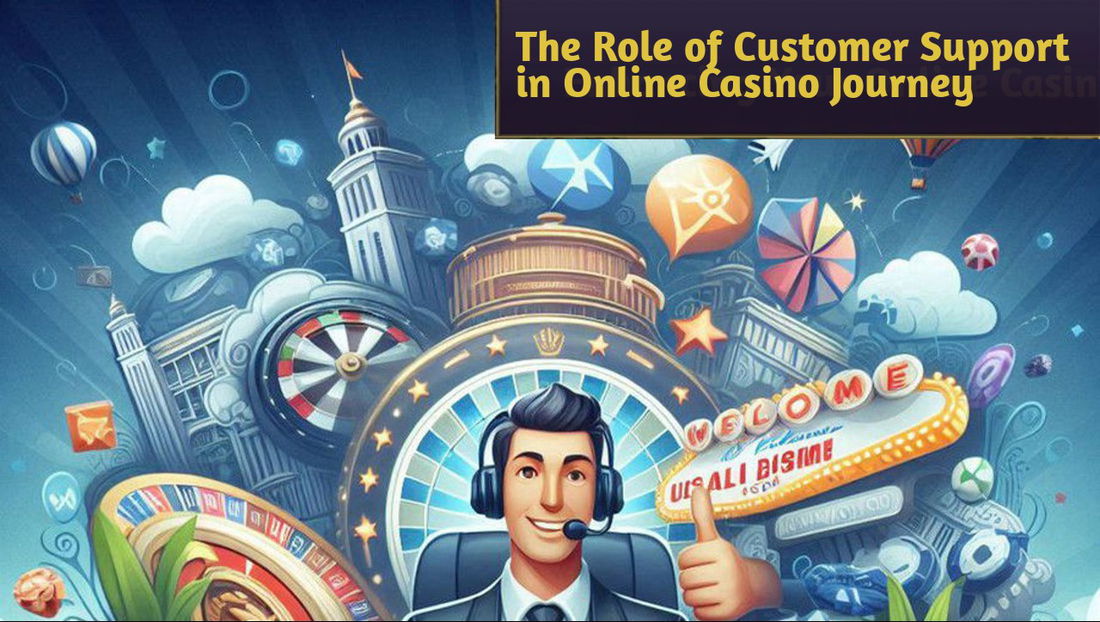Players must ensure a safe and fair gaming experience in the vibrant and ever-evolving online gambling world. Understanding online casino licensing is one of the most critical factors in achieving this. Licensing is a mark of legitimacy, offering players assurance that the casino operates under strict regulatory standards. However, the intricacies of casino licensing can often seem bewildering.
The Importance of Online Casino Licensing
Online casino licensing is the backbone of a trustworthy gambling experience. At its core, licensing is a regulatory mechanism that ensures casinos adhere to specific standards of operation, fairness, and security. Without proper licensing, players essentially gamble in an unregulated space where their interests are not protected. Licensed casinos must follow stringent rules set by regulatory bodies, including fair game practices, secure financial transactions, and responsible gambling measures.
One of the primary reasons licensing is crucial is the guarantee of fair play. Regulatory authorities mandate that casinos use certified Random Number Generators (RNGs) to ensure that game outcomes are entirely random and unbiased. This means that players have a genuine chance of winning, and the casino cannot manipulate results to its advantage. Additionally, licensed casinos undergo regular audits to verify that they maintain these standards consistently, providing ongoing assurance of their integrity.
Security is another significant aspect governed by licensing. Reputable licensing authorities require casinos to implement robust security measures to protect players’ personal and financial information. This includes the use of advanced encryption technologies and secure data storage practices. By complying with these regulations, licensed casinos minimize the risk of data breaches and fraud, creating a safer online gambling environment.
Moreover, licensing promotes responsible gambling. Regulatory bodies enforce policies encouraging casinos to provide resources for players to manage their gambling habits effectively. This includes setting deposit limits, offering self-exclusion options, and providing access to support services for those struggling with gambling addiction. Such measures are essential in fostering a responsible gaming culture and protecting vulnerable individuals from the potential harms of excessive gambling.
Online casino licensing is indispensable for ensuring that players can confidently engage in gambling activities. It establishes a framework of accountability and transparency, safeguarding players’ rights and promoting a fair and secure gaming experience. Without licensing, the online gambling landscape would be rife with unethical practices and potential exploitation, undermining players' trust and enjoyment.
Understanding Different Licensing Authorities
Ad
The landscape of the best online casinos and their licensing is diverse, with various regulatory bodies overseeing different regions and aspects of the gambling industry. Players must understand the different licensing authorities to identify reputable casinos and avoid fraudulent platforms. Each licensing authority has its own set of standards, regulations, and levels of strictness, which can significantly impact the quality and safety of the casinos they regulate.
The United Kingdom Gambling Commission (UKGC) is one of the most well-known licensing authorities. The UKGC is renowned for its rigorous standards and comprehensive regulations, making it a gold standard in the industry. Casinos licensed by the UKGC are subject to frequent audits, strict adherence to fair play principles, and robust measures to protect player data and promote responsible gambling. The UKGC’s reputation for enforcing high standards makes it a trusted authority for players seeking secure and fair online casinos.
Another prominent authority is the Malta Gaming Authority (MGA). Malta has positioned itself as a hub for online gambling, attracting numerous casinos with its favourable regulatory environment. The MGA ensures licensed casinos operate transparently and ethically, focusing on player protection and fair gaming practices. Casinos under the MGA’s jurisdiction must comply with stringent requirements, including regular financial audits and adherence to anti-money laundering (AML) protocols. The MGA’s comprehensive approach to regulation provides players with confidence in the integrity of the casinos they choose.
The Gibraltar Regulatory Authority (GRA) is also significant in online gambling. Gibraltar’s licensing process emphasizes the integrity of gaming operations, ensuring that casinos meet high fairness, security, and operational efficiency standards. The GRA requires casinos to implement robust data protection measures and maintain financial stability, safeguarding players and the gambling industry. This authority is particularly favoured by casinos targeting a global audience, offering a balanced approach to regulation that supports both player safety and business sustainability.
In addition to these major authorities, several other reputable licensing bodies exist, such as the Alderney Gambling Control Commission (AGCC) and the Kahnawake Gaming Commission. Each of these authorities has unique regulations and standards, catering to different regions and market needs. Players should familiarize themselves with the various licensing authorities to better assess the credibility and reliability of online casinos. By choosing casinos licensed by reputable authorities, players can ensure that they are engaging in a secure and fair gambling environment.
Understanding the different licensing authorities ultimately empowers players to make informed decisions when selecting online casinos. It provides a clear benchmark for evaluating a casino's legitimacy and quality, fostering a safer and more enjoyable online gambling experience.
How to Verify an Online Casino’s License
Verifying an online casino’s license is a crucial step in ensuring a safe and fair gaming experience. While many casinos proudly display their licensing information on their websites, not all licenses are created equal. Players must take the time to confirm the authenticity and credibility of a casino’s license to avoid falling victim to fraudulent or unregulated platforms. Here’s a step-by-step guide to help you verify an online casino’s license effectively.
Ad
Firstly, locate the licensing information on the casino’s website. This is typically found in the footer section of the homepage or within the “About Us” or “Legal” pages. Reputable casinos will prominently display their licensing authority’s logo and provide details about their license, including the license number and the issuing body. This transparency is a positive indicator of the casino’s legitimacy.
Once you have identified the licensing authority, visit the official website of that regulatory body. For example, if a casino claims to be licensed by the UKGC, go to the UK Gambling Commission’s official site. Most licensing authorities offer a searchable database where you can verify the casino’s license status. Enter the casino’s name or license number into the search tool to confirm that the license is active and valid. This step ensures that the casino is indeed operating under the claimed regulatory standards.
In addition to checking the license status, review the details of the license. Ensure that the license is current and has not expired. Some licensing authorities may also specify the types of games the casino is authorized to offer and the regions in which it can operate. This information is vital for understanding the scope of the casino’s operations and ensuring it complies with regional regulations.
Another important aspect to consider is the reputation of the licensing authority itself. Authorities like the UKGC, MGA, and GRA are widely respected for their stringent regulations and enforcement. A license from a lesser-known or less reputable authority may not provide the same level of assurance regarding the casino’s fairness and security. Always prioritize casinos licensed by well-established regulatory bodies to ensure a higher standard of play and player protection.
Furthermore, look for additional certifications and seals of approval from independent testing agencies such as eCOGRA (eCommerce Online Gaming Regulation and Assurance). These certifications indicate that the casino has undergone thorough testing for fair play, RNG integrity, and secure transactions. Independent certifications add an extra layer of trustworthiness, affirming that the casino meets or exceeds industry standards.
If you encounter any discrepancies or difficulties in verifying a casino’s license, exercise caution and consider it a red flag. Unlicensed casinos may engage in unethical practices, including manipulating game outcomes, withholding player winnings, and compromising personal data. Protect yourself by choosing only those casinos that can provide verifiable and reputable licensing information.
In conclusion, verifying an online casino’s license is fundamental in ensuring a safe and fair gaming experience. By following a systematic approach—locating licensing information, confirming it through official regulatory databases, assessing the reputation of the licensing authority, and seeking additional certifications—players can confidently navigate the online gambling landscape. This due diligence not only safeguards your personal and financial information but also enhances your overall gaming experience by ensuring you play in a trustworthy and regulated environment.





— تعليقات 0
كن أول من يعلق